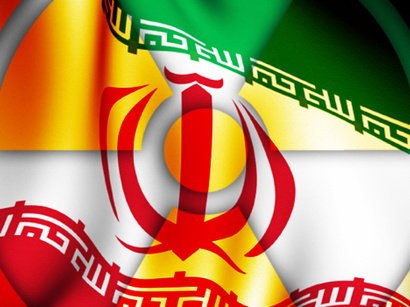Iranophobia or real fears of Bushehr nuclear power plant?

By Dalga Khatinoglu
The Persian Gulf Cooperation Council called for the International Atomic Energy Agency on Sunday to send a specialized technical team to inspect the Bushehr nuclear plant and investigate potential damages after last week's earthquake.
At a meeting in Saudi Arabia's capital Riyadh, the 6-member council expressed concerns over possible radiation leaks after an earthquake hit the area. They urged Iran to join the United Nation's Convention on Nuclear Safety.
The disinclination of Iran to join the Convention on Nuclear Safety is not a recent issue. In May 2011, Florence Mangin, Permanent Representative of France to the International Atomic Energy Agency told Trend Agency that he was deeply concerned about the issue. Although according to him, Iran provides the IAEA with reports about safety operations at Bushehr power plant, but Iran's representative to the IAEA Ali-Akbar Soltanieh has told Trend that the power plant is fully under the supervision of the IAEA.
Of course, Iran's refusal to join the Convention on Nuclear Safety - which was approved in 1986 after the nuclear disaster in Chernobyl - does not mean that inspectors of the IAEA do not supervise activities in Bushehr power plant. The IAEA conducted inspections on February 29 and 30 over Bushehr NPP.
Bushehr power plant began its trial operation in 2011. Since then, operation at the power plant has been suspended several times due to technical (such as unloading fuel from reactor due a shattered cooling pump in 2011) and security problems. The plant's reactor has not been operational since mid-April 2013 due to maintenance operations on turbines. The generating system of the power plant has been out of work during the last week's 6.3- Richter earthquake which occurred 90 kilometers away from the power plant.
The reactor of Bushehr power plant is a WWER-1000. The cooling systems of these reactors are highly vulnerable to damage. The emergency coolant system of reactor is 30 years old.
The same problems caused a disaster at Fukushima power plant after a Tsunami in 2011. Damaged cooling system resulted in melt down of reactors and leaking radioactive materials.
Overall, Bushehr nuclear power plant equipment has been put on rubber infrastructure with 285cm thickness with dampers which enable the power plant to sustain earthquakes of up to 8 on the Richter scale. Different shields have protected various parts of the power plant in order to reduce the danger of leaking radioactive materials.
There is no nuclear power plant in the world which is fully secured. However, Russia has implemented strict safety measures in the power plant. There are four faults around the power plant, with at least over 70 kilometers distance. The most important of all is the north-south Kazeroun fault, which extends 120 kilometers toward southern borders of Bushehr province with the Persian Gulf. That fault was the origin of the past week's earthquake which killed 37 people. In February, an earthquake of around magnitude 5 shook the region as well.
Although Russia has not provided Iran with any kind of safety guarantee in the contract for building the nuclear power plant, but the IAEA has not yet clearly expressed concern over the safety of Bushehr power plant.
Gholamali Migolinejad, the representative of Bushehr province to the Iranian parliament, stated in 2011 that Russia is not even willing to make Iran sure that incidents, such as breaking a pump in 2011 case to be not take place once again.
Despite these all, the IAEA is the body responsible for governing nuclear activities, and it has voiced no concern so far about any probable nuclear disaster in Bushehr power plant.
Considering the strategy of regional Arab states toward Iran, especially regarding political issues and rivalry with Iran to increase influence in some countries, including Iraq and Lebanon, and their concern about Shia groups which are active in Arab countries under the support of Iran, and also Iran's nuclear program, the Sunday meeting of the PGCC countries seems to have a political undertone than being an actual concern. The state of inactivity of Bushehr power plant during the earthquake proves the claim.
